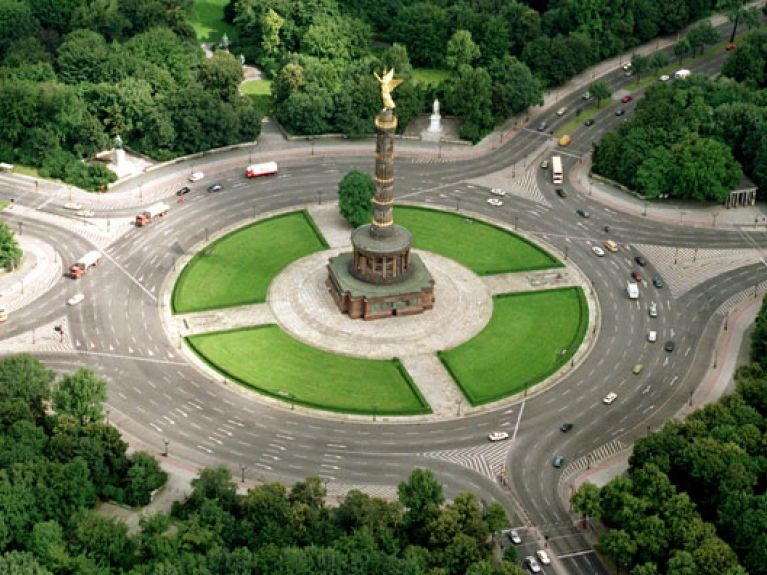Choice monuments
Monuments tell stories and reveal history. There are around 1.3 million in Germany. A selection of special places – beyond Brandenburg Gate and Neuschwanstein Castle.

Victory Column Berlin – from a symbol of war to a peaceful party location
One of Berlin’s most famous symbols is the Victory Column, fondly referred to as “Goldelse” or Golden Lizzy. The 69-metre-tall monument with a gilded sculpture of Victoria was erected in 1873 as a national monument to commemorate Prussian military victories. After the fall of the Berlin Wall the onetime war monument became a symbol of the peaceful Love Parade dance movement.
Deutsches Eck (German Corner) – a unifying monument
At Deutsches Eck in Koblenz, where the Mosel flows into the Rhine, the monumental equestrian statue of German Emperor Wilhelm I attests to Germany’s turbulent history: It was erected in 1897 as a monument to the founding of the German Reich. In World War II the statue was badly damaged. What was left of the plinth served from 1953 to 1990 as a memorial for German unity. After unification a new statue was installed – bringing together what belongs together.
Rotenberg Mausoleum – love beyond the grave
In Stuttgart’s Rotenberg district a mausoleum tops the Württemberg hill and tells a great German love story. Württemberg King Wilhelm I had it built in the 19th century in memory of his deceased wife. The inscription “Love never dies” above the entrance to the sepulchral chapel still attests to his great feelings for Grand Duchess Catharine Pavlovna of Russia.
Kandler Gasthof – a cosy place ideal for films
Given the proverbial German cosiness, it is hardly surprising that an especially comfy Bavarian tavern is on the list of monuments. The Kandler tavern in Oberbiberg near Munich was built in the mid-19th century. Its wooden bowling alley from 1905 is of special historic importance. As a typical German tavern, the Kandler is a popular film location.
International Monument Day is 18 April
